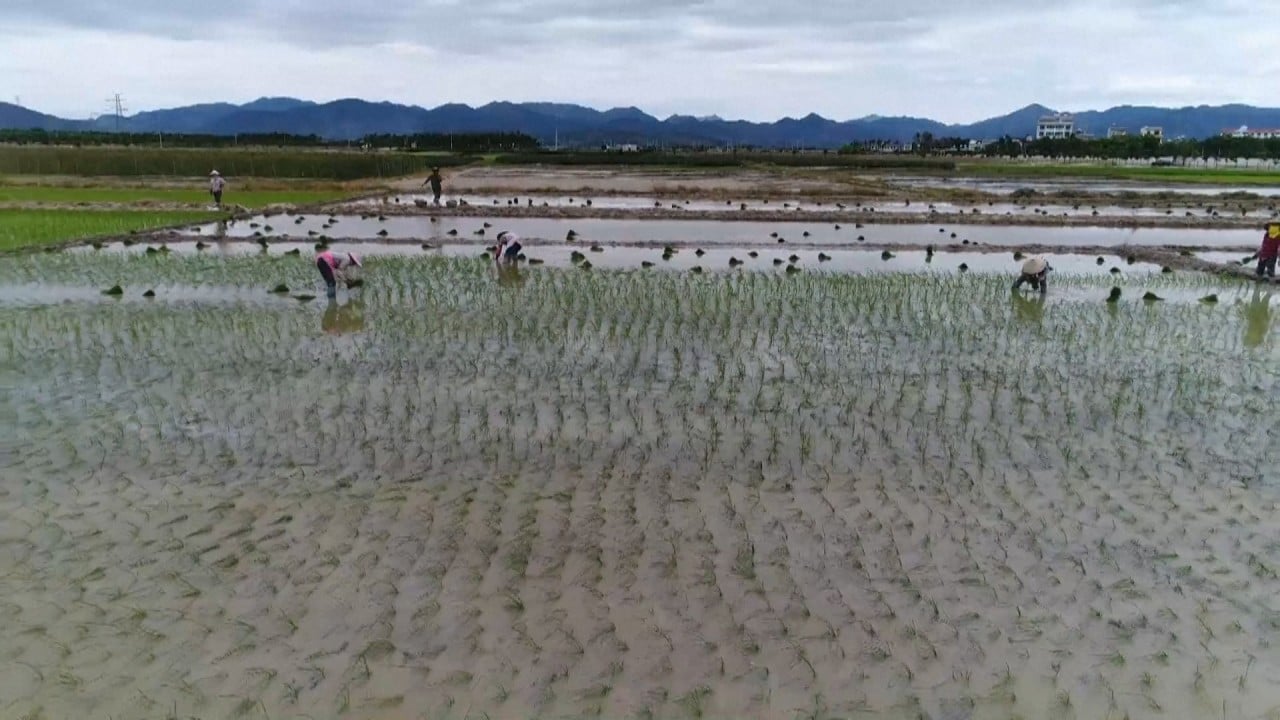
Explainer | China vaults salt with saline-tolerant crops, increasing yields and advancing food security goals
- China, hampered by a relative scarcity of arable land, has developed methods to farm mineral-dense soils not ordinarily conducive to plant life
- Tolerance in crops, amelioration of land among solutions to bottleneck that could otherwise halt country’s campaign for self-reliance in food
As extreme weather events battered China’s traditional breadbaskets and abrupt geopolitical shifts made reliable grain prices a thing of the past, Beijing has ramped up its campaign to safeguard food security, employing a variety of methods to expand yields and cultivate more efficiently.
To guarantee its 1.4 billion people can be fed without despoiling its limited stocks of arable land – a paradox that has always been a major hurdle to self-sufficiency -the country has explored ways to grow in soils dense with plant-killing salts and minerals.
What is saline-alkaline land, and where is it?
“Saline-alkaline land” refers to soil that contains an excess of both soluble salts and exchangeable sodium, both of which make land more difficult to farm.
China has the world’s third-largest surface area of saline-alkaline land at about 100 million (247 million acres) hectares, with about one-third carrying the potential for utilisation.
That land is distributed throughout the country, found in 19 provinces spanning China’s southeastern coast as well as the arid north and northwest.
Why are saline-alkaline soils vital for food security?
The cultivation of saline and alkaline soils is one of many areas Beijing has identified to bolster its domestic food supply.
Others include the strict protection of arable land, building “high-standard” land, amending and drafting laws on food security and improving per-unit yield through mechanisation and new technologies.
Saline-alkaline soil has been named as a “non-traditional farmland” worth targeting for reclamation.
China and Russia supercharge trade with record US$25 billion grain order
Turning seemingly toxic stretches of land into workable tilling ground would be a major accomplishment, as it would demonstrate China can overcome limitations on its natural resources and “steadily expand the space for agricultural production”.
President Xi Jinping, who has on many occasions called for the country’s “rice bowl” to be “firmly held” by the Chinese people, acknowledged “farm protection [had become] more difficult” in a high-level meeting in July.
What has China done so far?
China has employed several approaches to making saline-alkaline land more fertile. It has ameliorated mineral content, developed more tolerant crops – or both, depending on the area – to strengthen self-reliance and reduce dependence on imports.
Saline-alkaline land in northeast China’s Jilin province has also seen impressive harvests after soil treatment and the improvement of tolerant crops, People’s Daily reported last month.
What’s next for China?
Different types of saline or alkaline farmland should be managed with tailored approaches, Xi said during the meeting in July.
Those which have been effective, he added, should be widely applied, with the government formulating fiscal and monetary policies to support projects that have proven successful.
A guideline on the comprehensive utilisation of saline-alkaline land has also been reviewed and approved, the official Xinhua News Agency has reported.


